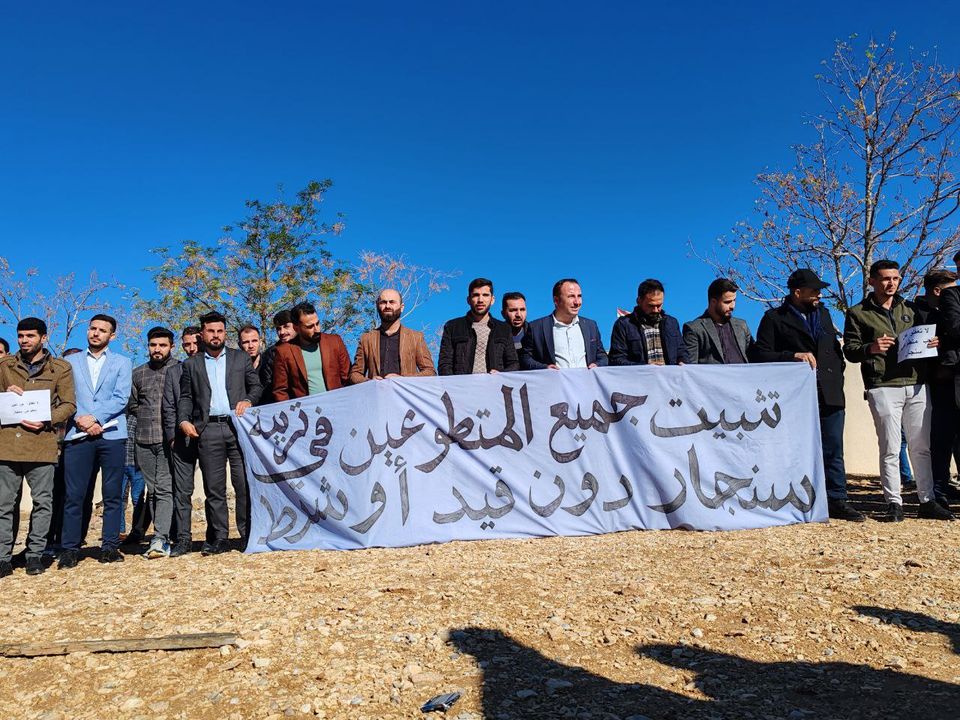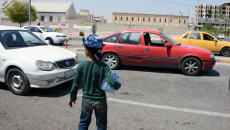About 1000 volunteer lecturers in war-torn-Shingal, home for the non-Muslim Ezidid (Yazidi) community to be employed per contracts, an assistant of Nineveh governor said, following ten days of protests.
Rifaat Simo, Assistant Governor of Nineveh for Administrative Affairs, said that simple steps are needed until the final approval is issued by the Council of Ministers on the decision to appoint 600 volunteer lecturers in Shingal and 400 lecturers in the camps for the displaced IDPs.
“We have been working on this issue for more than six months. We asked the governor to approve the exception of these lecturers from the appointment regulations within the 17,000 contract degrees that were allocated to Nineveh Governorate,” Simo added.
"Abdulqader Khalil, the acting governor of Nineveh, indicated that simple steps are now separating us from obtaining final approval by the Council of Ministers to appoint 600 volunteer lecturers in Shingal, in addition to 400 other lecturers in the camps."
Volunteer teachers in Sinjar Arabic education are not paid by the state and money is collected from students or parents to be paid monthly as aid or for transportation fees for teachers, which does not reach 100,000 dinars per month.
Contract teachers make 250,000 Iraqi dinars IQD (USD160) monthly and will have the same rights as fully employed teachers, including retirement after 15 years of service, bank loans and advances, fully paid maternity leave, a plot of land, and priority for full employment once vacancies are announced.
The pledge comes after hundreds of volunteer lecturers in the Arabic Studies Department in Shingal threatened to go on strike if they were not employed or at least appointed under contracts in order to benefit from some of the privileges enjoyed by their peers.
In mid-November, approximately 800 volunteer lecturers went on strike for ten days and organized protest gatherings.
In general, state schools in the Shingal district suffer from a lack of teaching staff, and part of this problem started when the Iraqi government stopped employment for all sectors including education leaving schools in need of new teachers.
The district of Shingal, 120 km west of Mosul, the center of Ninewa province, is home to the Ezidi minority heavily targeted by the Islamic State in Iraq and Levant ISIL group in August 2014 and one of the disputed territories between Baghdad and Erbil.
Education like other sectors of life is divided between Baghdad and Erbil as schools sponsored by Baghdad study Arabic curriculum while those funded by the Kurdistan Regional Government KRG are in Kurdish.
According to two official statistics from the Arabic Education of Sinjar and the Iraqi Government Education Representation in Duhok, there are about 80,000 students of Arabic education in Sinjar, which are divided into more than 240 schools, including about 40,000 students and more than 100 schools in Sinjar district and others are displaced in or outside camps for the internally displaced persons IDPs of the IKR.
There are more than 600,000 IDPs in the IKR, some of whom are staying in 26 camps, mostly Ezidis and Muslim-Sunni Arabs from Nineveh, according to the KRG figures.
Iraq’s education infrastructure is in ruins in many parts of the country; one in every two schools is damaged and needs rehabilitation, says a report by the United Nations Children's Fund UNICEF about education in Iraq.
Many schools operate in multiple shifts due to inadequate buildings and staff in an attempt to accommodate as many students as possible, squeezing the little learning time that children have.






